Sierra Tucson offers effective, comprehensive treatment for individuals in relapse from drug addiction.
Understanding Treatment
Understanding drug addiction treatment & long-term sobriety
Addictions to drugs or alcohol can destroy a person’s life. Every facet of their existence can be negatively impacted, and devastation can prevail over wellness. Overcoming an addiction to any type of substance is a monumental achievement, as it requires strength, bravery, and dedication. For this reason and more, overcoming an addiction is something to be proud of, and it should be celebrated.
While some individuals are able to conquer an addiction on their own, most require the help of professionals. Depending on the type of substance that an individual has become addicted to, as well as the physical and psychological effects that have arisen as a result of that addiction, various levels of care will be appropriate.
Yet, while treatment is commonly successful in helping individuals put an end to their abuse of drugs or alcohol, it is not the end point. Addiction is not something that can be cured, and maintaining sobriety often requires a life-long commitment to one’s recovery. As such, most reputable treatment centers will arm individuals with the tools they need upon completion of care in order to have the best chance at sustaining their sobriety. The professionals at these treatment centers will work diligently with individuals in devising a thorough discharge plan that will outline various supports and interventions that can be accessed once residents have left the structured treatment setting.
Engaging in these aftercare options is extremely beneficial and can often mean the difference between successful recovery and devastating relapse.
Why Do People Relapse?
Reasons why people relapse from drug addiction
When an individual has maintained sobriety for a period of time, but then falls back into using their drug of choice, it is known as relapsing. While experiencing a relapse can be incredibly demoralizing, it should not be viewed as a sign of weakness or evidence of failure. Unfortunately, relapsing is a common occurrence and should be seen as nothing more than a setback in one’s recovery journey that can be reversed.
There are countless reasons why an individual may experiencing a relapse after remaining sober for a period of time. Examples of some such circumstances can include, but are not limited to, the following:
- Overwhelming stress
- Loss of important relationships
- Death of a loved one
- Boredom
- Belief that one can use a substance again without falling back into the pattern of addiction
- Suffering a trauma
- Being in the presence of others who are using drugs and/or alcohol
- Not adhering to the suggestions made for aftercare and continuing support services
Preventing Relapse
How to prevent drug addiction relapse
As was previously mentioned, experiencing a relapse should not make a person feel as though they have failed. Instead, it can be viewed as a way to recommit themselves to their recovery and become stronger in the process.
Due to the fact that temptations are everywhere, and that there are any number of stresses that could place a person at risk for relapsing, it is imperative that individuals in recovery make a conscious effort to prevent themselves from returning to the use of drugs and/or alcohol. Suggestions for ways that one can prevent a relapse can include, but are not limited to, the following:
- While in treatment, work with your treatment provider to determine continuing care options or support services that can help you maintain your sobriety.
- Once you have left the treatment setting, be diligent in adhering to the recommendations offered in your discharge plan.
- Join a support group within your community and/or attend Alcoholics Anonymous (AA) or Narcotics Anonymous (NA) meetings. The more support that you have, the greater chance you will have at sustaining sobriety. Additionally, engaging in these types of supports, you will be surrounded by other individuals who have experienced situations that are similar to your own, which can help eliminate feelings of isolation.
- Seek out a sponsor who you feel comfortable with and who you believe you can trust. Keep in regular contact with this individual so that they can help you deal with stresses and hold you accountable to your goal to resist temptations.
- Consistently practice the coping skills that you developed while in treatment.
- Refrain from going to places where substances are being used or where you feel that you may be tempted to use.
- Avoid being around people who are using substances, or who do not support you and your recovery efforts.
- Share your goals for remaining sober with those who are closest to you. In doing so, you can receive additional ongoing support and not feel like you are having to confront challenges on your own.
Should you relapse, do not feel as though you have failed. You do not need to give up hope. Take the steps you need to in order to recover from that relapse and then recommit yourself to your recovery journey.
If you have any questions about continuing care options, or have experienced a relapse and are seeking support to regain sobriety, please do not hesitate to contact the professionals at Sierra Tucson today. Our team of dedicated addiction experts want to help you reach your goals and maintain them for the long-term. Everyone deserves to be successful, and we want to help you get there.













